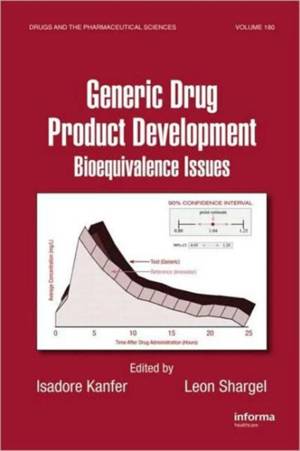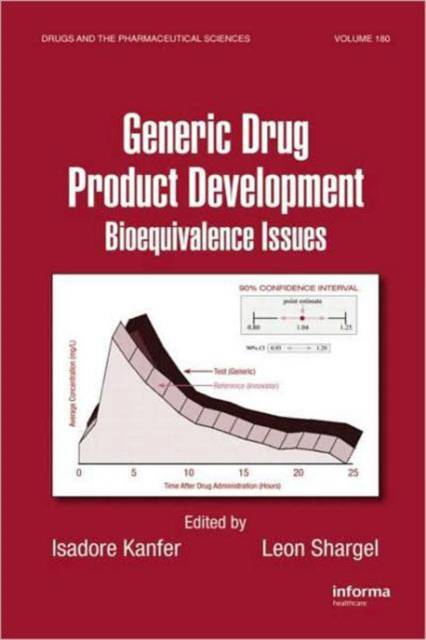
- Afhalen na 1 uur in een winkel met voorraad
- Gratis thuislevering in België vanaf € 30
- Ruim aanbod met 7 miljoen producten
- Afhalen na 1 uur in een winkel met voorraad
- Gratis thuislevering in België vanaf € 30
- Ruim aanbod met 7 miljoen producten
Zoeken
€ 373,95
+ 747 punten
Omschrijving
The assessment of bioequivalence is an important process whereby the bioavailability of a generic drug product is compared with its brand-name counterpart; generic pharmaceutical products must be approved as therapeutic equivalents to the brand name alternative in order to be interchangeable. The demonstration of bioequivalence is an important component of therapeutic equivalence. Bioequivalence studies are very expensive, time consuming and always have the possibility of failure. The objective of this textbook is to describe some of those specific bioequivalence issues which need to be considered for the design and conduct of a bioequivalence studies. By exploring scientific, legal, and international regulatory challenges, this source discusses the use of alternative approaches to the measurement of plasma drug concentrations for the demonstration of bioequivalence, and covers bioequivalence procedures for drug products that are not easily assessed - based upon the chemical composition of the active drug and the nature of the drug product..
Specificaties
Betrokkenen
- Auteur(s):
- Uitgeverij:
Inhoud
- Aantal bladzijden:
- 288
- Taal:
- Engels
- Reeks:
- Reeksnummer:
- nr. 180
Eigenschappen
- Productcode (EAN):
- 9780849377846
- Verschijningsdatum:
- 15/11/2007
- Uitvoering:
- Hardcover
- Formaat:
- Ongenaaid / garenloos gebonden
- Afmetingen:
- 163 mm x 230 mm
- Gewicht:
- 508 g

Alleen bij Standaard Boekhandel
+ 747 punten op je klantenkaart van Standaard Boekhandel
Beoordelingen
We publiceren alleen reviews die voldoen aan de voorwaarden voor reviews. Bekijk onze voorwaarden voor reviews.







